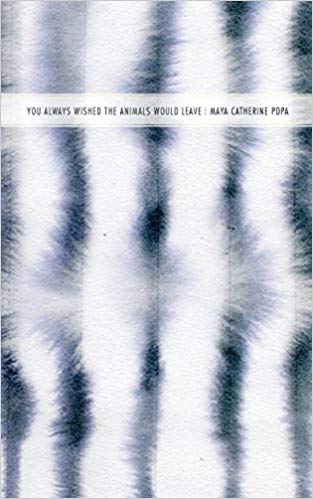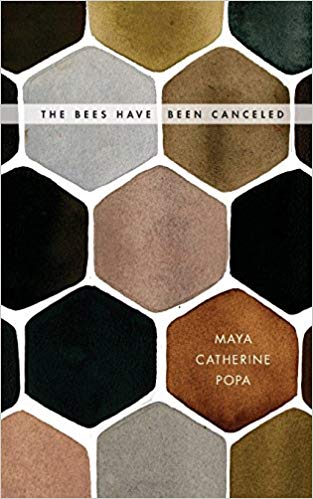
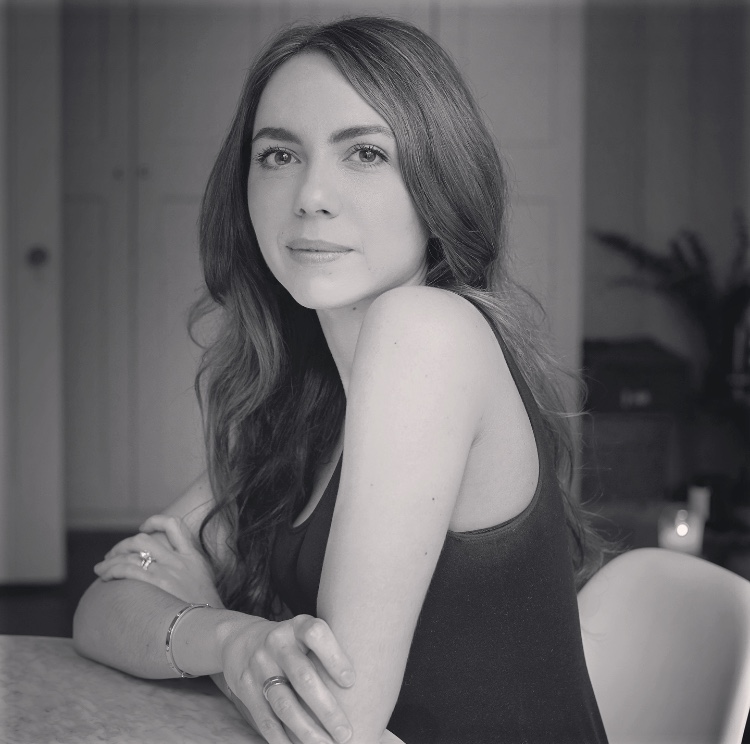
Maya C. Popa
Award-winning Poet
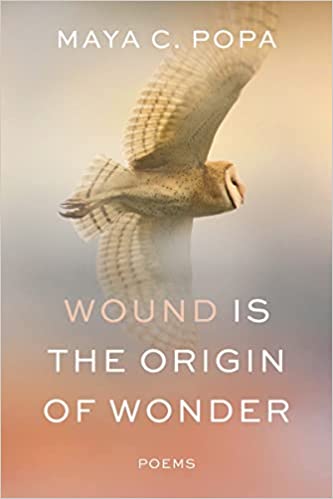
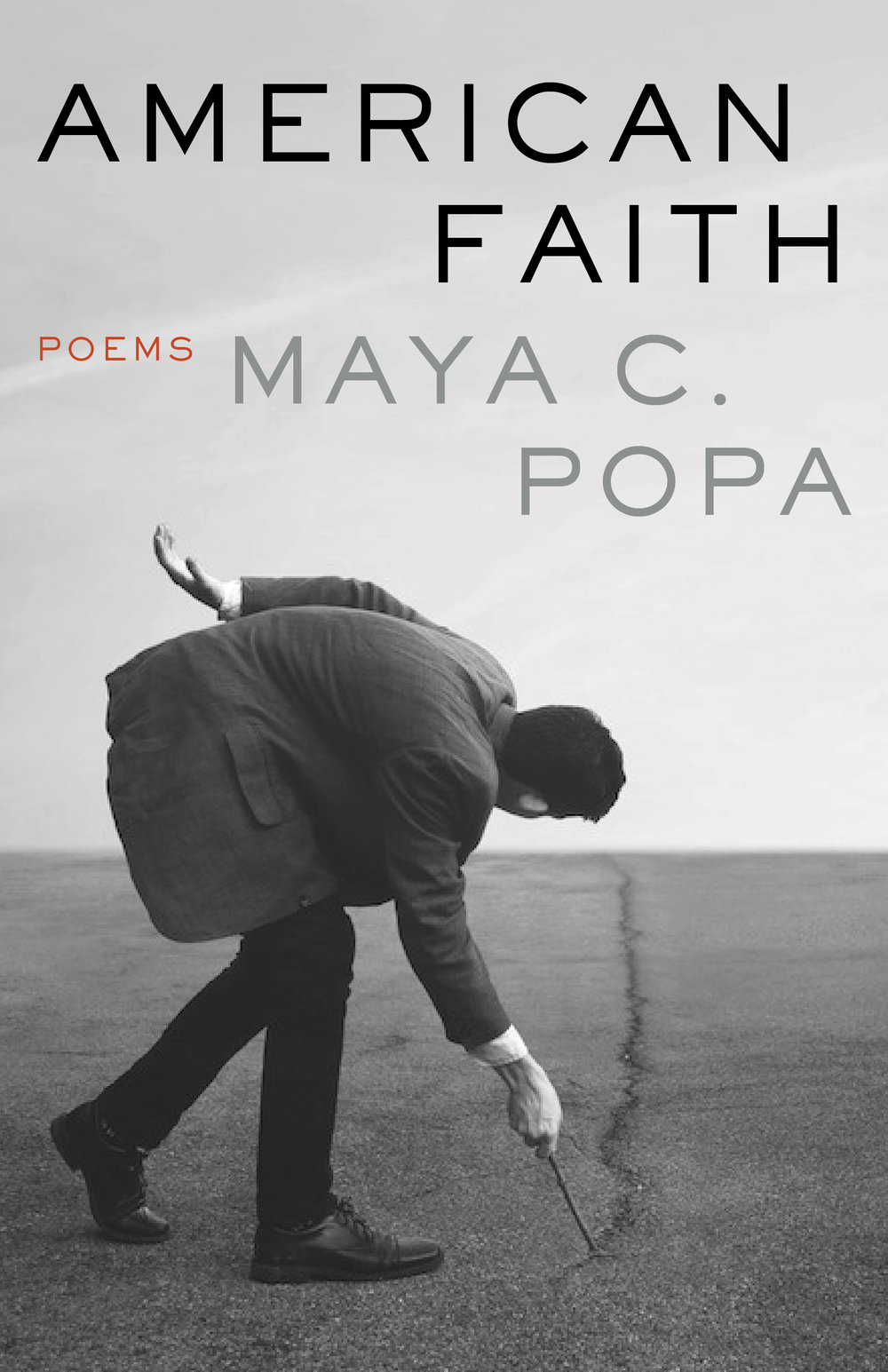
Readings &
Lecture Topics
- An Evening with Maya C. Popa
Biography
“Maya C. Popa’s poems move with a confident, quick-as-dread sweep toward an alarmingly clear articulation of what it is to be an American.” –Mark Doty
“Subtle and gorgeous. The ecstatic language of Maya C. Popa’s meditations and confessions is animated as much by pain as by joy.” ―Publishers Weekly (starred review)
“Maya C. Popa’s writing is haunted by violence and catastrophe, by the consequences of human desire turned to incommensurate ends, and anxious about the resources of language. Popa’s work is serious, but there’s joy here, too, in a balance that defies gravity.” –Averill Curdy
Maya C. Popa is a Romanian-American poet and, most recently, the author of Wound is the Origin of Wonder (W. W. Norton, 2022), a finalist for the 2023 Levis reading prize from VCU. “They are Building a Hospital” from the collection appeared on the On Being podcast hosted by Pádraig Ó Tuoma. Her first full-length collection, American Faith (Sarabande, 2019), was a recipient of the North American Book Prize and a runner-up in the Kathryn A. Morton Prize judged by Ocean Vuong. She is also the author of two chapbooks, both from the Diagram Chapbook Series: You Always Wished the Animals Would Leave and The Bees Have Been Canceled, which was a PBS Summer Choice.
About American Faith, Deborah Landau says, “Maya Popa’s clear-eyed lyrics register with steady power a spectrum of 21st century violences. In poems that take on the devastating pressure of climate change, gun violence, and our threatened democracy, Popa uses her gift to grieve and in grieving forge song. Revelatory yet emphatically unsentimental, Popa’s unflinching distillations illuminate the facets of our broken world; there is much wisdom here, and grace, and heart.” And of her most recent collection, Kaveh Akbar observes, “I am stuck in an almost life, / in an almost time,’ Maya C. Popa writes in the titular poem from Wound Is the Origin of Wonder. Suspended in the uncanny amber of such a time, such a place, we readers encounter ourselves, endlessly reprocessing our own pasts and worrying our futures as the vast roiling moment corrodes both. Still, Popa insists upon, if not hope exactly, then a world beyond the hopelessness this one inspires: ‘There are still things that cannot be imagined.’ Wound Is the Origin of Wonder is a complex, searching collection, one I will be returning to for years.”
In 2021, Popa she was commissioned by The United Nations to write a poem and deliver the opening remarks for the International Day of the Girl Conference. Her poetry was featured on a Louis Vuitton trunk for the Visionaries 200-Year Anniversary campaign. Her newsletter, Poetry Today, was named a 2023 Substack Featured Publication.
Popa is the recipient of awards from the Poetry Foundation, the Oxford Poetry Society, the Hippocrates Society in London, and the Munster Literature Centre in Cork, Ireland, among others. She is the Poetry Reviews Editor at Publishers Weekly and teaches poetry at NYU. She is director of creative writing at the Nightingale-Bamford school where she oversees visiting writers, workshops, and readings.
She holds a PhD on the role of wonder in poetry from Goldsmiths, University of London, where she was a recipient of a department bursary for exceptional merit. She has been invited to speak on the role of wonder in poetry at Oxford University and elsewhere.
Short Bio
Maya C. Popa is the author of two collections, Wound is the Origin of Wonder (W.W. Norton, 2022) named one of the Guardian’srecent best books of poetry, and American Faith (Sarabande, 2019), runner-up in the Kathryn A. Morton Prize judged by Ocean Vuong and winner of the North American Book Prize. Her poems and essays appear in The Atlantic, the Nation, Poetry, the Paris Review, the Times Literary Supplement and elsewhere. She holds a PhD on the role of wonder in poetry from Goldsmiths, University of London, where she was a recipient of the English department bursary for exceptional merit. She was previously a Clarendon Scholar at Oxford University, where she reserved her MA, and a Veterans Fellows at NYU, where she earned her MFA. Her newsletter, Poetry Today, is one of Substack’s best-selling featured publications. Since 2018, she has served as the Poetry Editor of Publishers Weekly and Director of Creative Writing at the Nightingale-Bamford School. She teaches advanced poetry at NYU.
Visit Author WebsiteVideos
Publications
Wound is the Origin of Wonder
Poetry, 2022
A ravishing volume of poems that explore appetite, desire, and our gratitude for one another and the vanishing world.
Award-winning poet Maya C. Popa suggests that our restless desires are inseparable from our mortality in this pressing and precise collection. In lucid, musically rich poems, she appeals to a dwindling natural world and summons moments from the lives of literary forbearers―Milton’s visit to Galileo, a vase broken by Marcel Proust―unveiling fresh wonder in the unlikely meetings of the past. Popa’s poems dramatize the difficulties of loving a world that is at once rich with beauty and full of opportunities for grief, and reveal that the natural arc of wonder, from astonishment to reflection, more deeply connects us with our humanity.
American Faith
Poetry, 2019
The ultimate subject of Maya C. Popa’s stunning debut collection is violence. American Faith begins with its manifestation in our country: a destructive administration, a history of cruelty and extermination, and a love of firearms. The violence naturally extends to the personal. What for some is routine can feel like an assault: a TSA agent wipes down a bra tucked in a traveler’s suitcase, adding, “…prettiest terrorist I’ve seen all day.” Tentatively, the title poem casts light on the unrevealed future, a solution that includes faith: “…the days, impatient, fresh beasts, appeal to me—/ You are here. You must believe in something.”
You Always Wished the Animals Would Leave
Poetry, 2018
“In Maya Catherine Popa’s You Always Wished the Animals Would Leave, feathers are unfulfilled parables, a hen’s eggs turn a vicious red, and a super moon “blooms a tyranny of flowers.” A helix of histories lies threaded to both the present day and the various magics of night. These poems are smart and lush, and at the end of each of them my heart, mind, and ear argue over which was lavished with the most pleasure. I am enchanted by this book, in its thrall, its bright gravity, its terribilitá.” –Traci Brimhall
The Bees Have Been Canceled
Poetry, 2017
“The poems in The Bees Have Been Canceled are ravenous, rich, and exquisitely built. Maya Catherine Popa’s language makes visible how yearning tethers the mind to the world and how hurt spawns an astonishing self-awareness. Her gaze alights on beauty and violence; it ‘scurries from birth to blight.’ Such attentive looking brings closer the brokenness of the world. This gaze is also restorative; it alleviates and mends and delights.” –Eduardo C. Corral
Articles & Audio
Read What’s In Print
• Writing Through the Dark: Poetry 2021 by Maya C. Popa – Publishers Weekly
• Review of American Faith by Maya C. Popa – Publishers Weekly
Selected Writings
• Read “Dear Life” by Maya C Popa – The Guardian
• Read “My Brother Doesn’t Wake Up Wishing We Were Closer” – The Adroit Journal
• Read “When Verse Goes Viral” – Publishers Weekly
LETTER TO NOAH’S WIFE
You are never mentioned on Ararat
or elsewhere, but I know a woman’s hand
in salvation when I see it. Lately,
I’m torn between despair and ignorance.
I’m not a vegetarian, shop plastic,
use an air conditioner. Is this what happens
before it all goes fluvial? Do the selfish
grow self-conscious by the withering
begonias? Lately, I worry every black dress
will have to be worn to a funeral.
New York a bouillon, eroded filigree.
Anything but illness, I beg the plagues,
but shiny crows or nuclear rain.
Not a drop in London May through June.
I bask in the wilt by golden hour light.
Lately, only lately, it is late. Tucking
our families into the safeties of the past.
My children, will they exist by the time
it’s irreversible? Will they live
astonished at the thought of ice
not pulled from the mouth of a machine?
Which parent will be the one to break
the myth; the Arctic wasn’t Sisyphus’s
snowy hill. Noah’s wife, I am wringing
my hands not knowing how to know
and move forward. Was it you
who gathered flowers once the earth
had dried? How did you explain the light
to all the animals?

